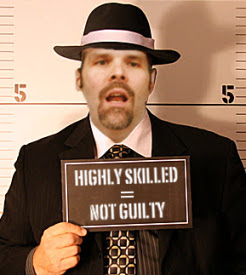 Attorneys for former Full Tilt Poker director Howard Lederer are seeking to use the recent ‘poker doesn’t fall under the federal Illegal Gambling Business Act’ ruling by District Court Judge Jack Weinstein to have some of the Black Friday civil charges brought by the US Department of Justice against their client reduced or even eliminated entirely. On Tuesday, Keker & Van Nest attorney Elliot R. Peters filed a request for a status conference with Judge Leonard B. Sand “so that the parties may discuss, and the Court may consider, how best to manage this litigation in light of [Weinstein’s ruling].” Counsel for Lederer’s co-defendants – former FTP directors Chris ‘Jesus’ Ferguson and Rafe Furst – have indicated they wish to be a part of this conference.
Attorneys for former Full Tilt Poker director Howard Lederer are seeking to use the recent ‘poker doesn’t fall under the federal Illegal Gambling Business Act’ ruling by District Court Judge Jack Weinstein to have some of the Black Friday civil charges brought by the US Department of Justice against their client reduced or even eliminated entirely. On Tuesday, Keker & Van Nest attorney Elliot R. Peters filed a request for a status conference with Judge Leonard B. Sand “so that the parties may discuss, and the Court may consider, how best to manage this litigation in light of [Weinstein’s ruling].” Counsel for Lederer’s co-defendants – former FTP directors Chris ‘Jesus’ Ferguson and Rafe Furst – have indicated they wish to be a part of this conference.
Peters is of the opinion that the DoJ’s case against his client hinges on the theory that online poker violates the IGBA, and since Weinstein now says that’s not true, “then much of the government’s case here, and many of the seizures which have already been authorized, will no longer have a legal basis.” Peters helpfully suggests that Sand may now wish to (a) stay the case against Lederer et al until the Weinstein ruling has made its way up the appeals court food chain; (b) assign a magistrate to hash out a settlement between the opposing parties; or (c) weigh in with his own take on whether poker falls under the scope of the IGBA. Peters notes that the DoJ has until Sept. 10 to decide whether to file an amended complaint that takes Weinstein’s ruling into account.
While Lederer et al are desperately hoping that Judge Sand will buy Weinstein’s ‘poker is a game of skill’ argument, professional poker players in Germany are hoping a judge reaches the exact opposite conclusion. Tax-news.com reports that a court in Cologne is trying to determine whether pro players should be required to pay taxes on their winnings. The German tax authorities are saying that if poker players are using skill, knowledge and experience to boost their paydays, then their winnings should be considered as the proceeds of a commercial activity subject to taxes. Naturally, the poker-playing defendant – who was hit with a back-tax claim on $1m of winnings between 2001-2008 – is arguing that success on the felt is largely a matter of chance, in that there are actions he can take to influence the outcome, but he can’t guarantee things will turn out as he planned. Several hundred German pros are reportedly facing similar tax demands, so they’ll be awaiting the outcome with baited breath — and likely making sure their passports are up to date, just in case…
